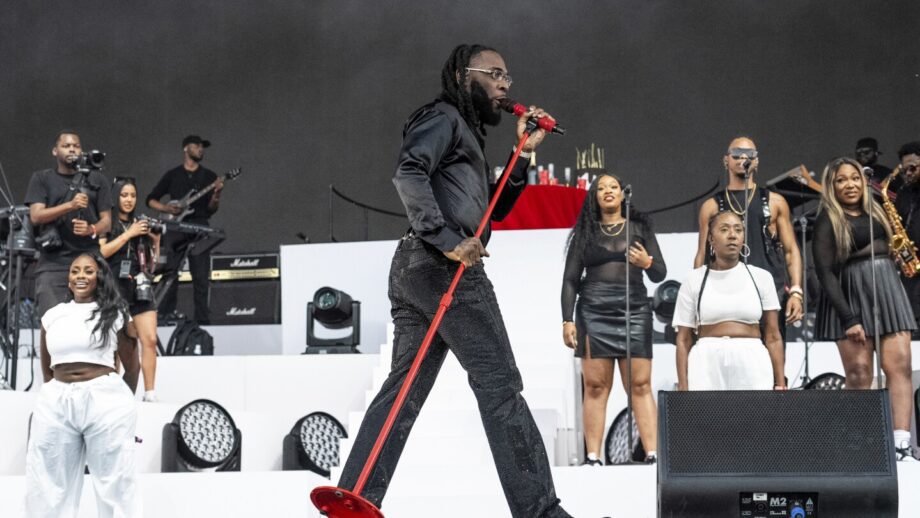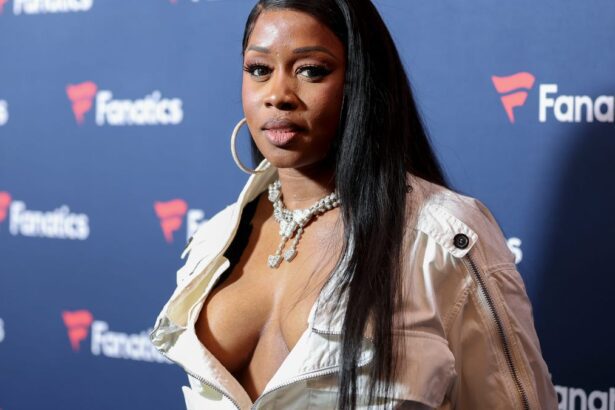ABUJA, Nigeria (AP) — Africans are making their mark on the global music scene, from captivating performances at the FIFA World Cup to the recent introduction of a new Grammy Awards category dedicated to African music. This breakthrough comes after years of battling structural barriers within the industry.
With appearances on prominent international platforms and significant numbers on global music charts, African musicians are spearheading a new era for music originating from the continent. This transformation is fueled by high-profile collaborations, the power of the internet and streaming services, and increased investment opportunities.
The upcoming Grammy for best African music performance aims to spotlight regional music traditions and honor “recordings that incorporate unique local elements from various parts of the African continent.”
“Winning a Grammy serves as global recognition of a musician’s talent and hard work — a signal that their voice is being heard and acknowledged on the world stage,” shared LeriQ, a Nigerian producer instrumental in the success of Burna Boy’s Grammy-winning album “Twice As Tall.”
FROM AFROBEATS TO AMAPIANO
Sub-Saharan Africa emerged as the fastest-growing region for recorded music revenues in 2022, according to the International Federation of the Phonographic Industry’s Global Music Report 2023.
This growth is driven by newer music genres like Afrobeats — a fusion of distinct West African musical styles — and amapiano, which blends South African kwaito with elements of African jazz, house music, and soulful vocals.
Other notable genres include Afrobeat — distinguished from Afrobeats — a mix of jazz, funk, and traditional West African rhythms popularized by Nigerian music legend and activist Fela Kuti in the 1970s. Additionally, there is Afropop, encompassing a diverse range of contemporary styles, and the traditional soukous music from Congo and other parts of Central Africa. The rhythmic shaabi and chaabi tunes heard in the streets of North Africa as well as Kenya’s benga and Tanzania’s bongo flava dominating dance floors in East Africa, echo the vibrancy of West Africa’s fuji and highlife music.
Streaming platforms play a crucial role in enabling these genres to transcend borders and continents. Notably, Spotify has witnessed over a 500% increase in Afrobeats streaming since 2017.
The track “Calm Down” by Nigerian artist Rema featuring Selena Gomez broke records as the first song by an African artist to surpass 1 billion streams on Spotify and remained on Billboard’s Pop Airplay chart for a record 64 weeks.
Rema and Selena Gomez accept the award for best Afrobeats for “Calm Down” during the 2023 MTV Video Music Awards (Photo by Charles Sykes/Invision/AP, File)
An essential element in the popularity of tracks like “Calm Down” and other Afrobeats hits lies in their ability to resonate with daily experiences through a mix of Pidgin and local languages, engaging melodies, rhythmic drum patterns, and evocative lyrics,” explained Joey Akan, the founder of Afrobeats Intelligence newsletter.
“Nowadays, we have people joyfully dancing and chanting lyrics like, ‘I need ‘igbo’ and ‘shayo’ — which translates to ‘I need marijuana and alcohol,’” Akan remarked, referring to the chorus of Burna Boy’s 2022 hit “Last Last.”
The song “Water” by South African artist Tyla solidified the rise of amapiano, making her the highest-charting African female solo artist ever after reaching No. 10 on the Billboard Hot 100.
Some tracks beautifully blend multiple genres under the vast umbrella of African music.
“For instance, the song ‘Unavailable’ by Davido (from Nigeria) and Musa Keys (from South Africa), which earned a Grammy nomination, serves as a perfect example of a seamless collaboration between Afrobeats and amapiano,” stated South African DJ Nafy Dread.
AFRICAN CULTURE AND EXPERIENCES ON THE GLOBAL STAGE
Over the past year, African musicians have graced major sporting events, from Burna Boy captivating spectators at Istanbul’s Atatürk Olympic Stadium during the UEFA Champions League final to Rema entertaining guests at FIFA’s Ballon d’Or awards ceremony, and Davido featuring on the official FIFA World Cup soundtrack.
“Many of the music genres we cherish today, beyond Africa, have their roots or original influences from African music traditions,” noted Tina Davis, the president of Empire, a digital media distribution company closely affiliated with Grammy nominee Olamide’s YBNL record label.
Renowned five-time Grammy winner Angélique Kidjo stands as one of Africa’s most prominent musical figures, with a discography boasting 16 albums.
Angélique Kidjo arrives at the presentation of the 2023 Gershwin Prize in Washington (AP Photo/Amanda Andrade-Rhoades, File)
“The upcoming wave of musical talents emerging from Africa is set to take the global stage by storm, and the moment is now,” proclaimed the Beninese singer upon winning the best world music album Grammy .# A New Era for African Music
The storm of change is brewing, fueled by Africa’s burgeoning population. With 1.3 billion culturally diverse individuals, Africa is set to represent a significant portion of the global population by 2050. Nearly half of Africa’s migrants carry their musical heritage wherever they go, enriching the world with African melodies and rhythms.
African music, according to LeriQ, reflects the essence of its people, encapsulating their culture, experiences, and challenges. Beyond the dance floors of clubs and bars, these songs serve as anthems against oppressive regimes and societal injustices.
Artists like Nay wa Mitego, Burna Boy, and Folarin Falana use their music to shine a light on corruption, social issues, and government brutality. Music, as Chika Anene puts it, transcends mere entertainment, resonating with individuals based on their circumstances and needs.
## A Road Ahead
As African music gains global recognition, there is a growing commitment to nurturing local talents and infrastructure. Major record labels are showing interest, and the internet is playing a pivotal role in amplifying African music’s reach. Africa leads in mobile web traffic, opening up market opportunities for artists worldwide.
The democratization of African music, as noted by Kenyan musician Eric Wainaina, has empowered artists to express themselves freely, breaking away from predefined norms enforced by gatekeepers. However, challenges like limited funding and infrastructure persist, often necessitating partnerships with foreign entities for support and promotion.
G’bemi Ereku, an entertainment executive in Lagos, acknowledges that structural hindrances impede Africa’s music industry’s full potential, citing limited purchasing power and infrastructural shortcomings. Despite these obstacles, African music continues to resonate globally, offering a fresh and diverse musical experience.
African musicians face hurdles in gaining industry recognition and resources. Rising talents, like Nigerian artist Jhello, emphasize the importance of branding and resources in standing out in the competitive music landscape.
While Africa’s music streaming revenue is growing, it still lags behind the United States. Nigeria, a hub for Afrobeats, faces challenges like limited venue capacities that hinder the growth of music events like the Afro Nation Festival.
Nonetheless, as Akan from Afrobeats Intelligence points out, African music is captivating audiences worldwide, offering a unique emotional and experiential journey that resonates with diverse listeners.
An array of African music performances has garnered global acclaim, showcasing the rich musical tapestry emanating from the continent. From South Africa to West Africa, these talents are making waves on the global stage.
Reported by Mureithi from Nairobi and Magome from Johannesburg, with additional reporting by AP Music Writer Maria Sherman from Los Angeles.
For more on the 2024 Grammys, stay tuned for updates.




